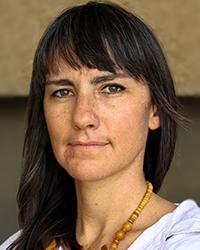Maeve Wallace has a really cool project in the works. She wants to conduct a study on the homicide of women during pregnancy or within the first year after the end of pregnancy. With this project, she will be examining neighborhood predictors of this kind of homicide, like current and historical deprivation of resources and health-promoting infrastructure in racially- and socioeconomically-segregated areas. Read more.
Maeve Wallace has an amazing project in the works. She recently submitted a grant application to the Eunice Kennedy Shriver National Institute of Child Health and Human Development for a study she wants to conduct on pregnancy-associated homicide, or homicide of a woman* during pregnancy or within the first year after the end of pregnancy. Maternal mortality, often considered to be a main indicator of a country's health, is limited to obstetric causes of death and does not include death by homicide, even though homicide is one of the leading causes of death among pregnant and postpartum women. With her study, Maeve intends to examine pregnancy-associated homicide in Louisiana in order to re-estimate a maternal mortality rate that includes violent deaths and also to look at contextual factors that might be related to their occurrence, specifically looking at neighborhood predictors of pregnancy-associated homicide. With this project, she will be examining things like racially- and socioeconomically-segregated areas that are, and have historically been, disproportionately deprived of resources and health-promoting infrastructure.
Maeve has a history of pursuing this line of inquiry and research. For example, she previously published a large national study of violent death (homicide and suicide) during pregnancy and postpartum. In it, she has found that homicide rates are higher among pregnant and postpartum women compared to non-pregnant/postpartum women. Maeve still has unanswered questions motivating her to continue working in this field. she is passionate about doing research that is needed and relevant to the community in which she lives and finds this work incredibly important in Louisiana and New Orleans in particular.
She is collaborating on this project with Emily Harville and Kat Theall, two other faculty involved in the VPI who focus primarily on reproductive epidemiology and neighborhood disorder, respectively.
*For the purposes of this highlight, we are referring to female-bodied people capable of giving birth when we say woman/women. We validate all people who identify as women and understand that this definition may exclude some individuals who identify as women and maintain the necessity to do so for this research that focuses on pregnancy and related outcomes.

